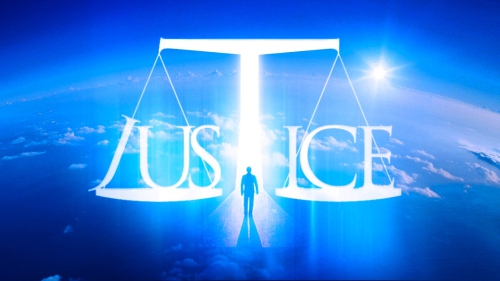Top Six Mistakes in Usul
 |
Out of all the Islamic subjects I've had the opportunity to explore in my time studying abroad, one of my favorites has been Usul al-Fiqh - the study of the methodology scholars employ to derive and extract rulings from Divine sources. Instead of looking at the details of specific rulings, Usul al-Fiqh "zooms out" to study the entire process, and to note the underlying principles used by scholars to make judgments about religious issues.
I've often found that at times, people misinterpret, misunderstand, and draw incorrect conclusions about Islamic law and Islamic legal rulings, due to their lack of refined understanding about these important principles and concepts. For this reason, I'd like to discuss six common mistakes people make related to the science of Usul al-Fiqh, and why understanding them correctly is important.
Mistake #6: "If I do something that is considered valid Islamically, it means that Allah accepts and loves that action."
An act that is legally valid in Islam means that it fulfills all the external and internal requisites outlined by Shariah for it to have a legal 'existence'. It is therefore effectual, binding and has legal consequences. This legal validity, however, does not guarantee that Allah will reward an individual for commission of that action, that He will accept it from them, or that He is pleased with them for performing it. Attaining Allah's acceptance and pleasure is based on many more factors, including the person's intention, his or her internal state when performing the action, and what means the individual used to accomplish it.
For example, a person may perform a prayer that is legally valid - fulfilling all of its prerequisites and external and internal components - yet, their intention while performing it is one of ostentation, their prayer is done in a completely absent-minded state, and they pray on land that had been illegally usurped and in clothes acquired in an impermissible way. While such a prayer may be technically valid, 1 we cannot say that it is something Allah will accept and love. In truth, it may be that such an individual has actually accrued sin, and further distanced themselves from Allah, all while performing a technically valid action.
Another example would be a man who marries a second wife in a manner that includes deception, dishonesty, and that greatly grieves the first wife and breaks the ties of love and loyalty between them. While he may staunchly defend his second marriage as one that is valid in Islamic law, its validity does not negate the improper conduct by which it was accomplished and the consequences of it, for which he will be held accountable. The marital contract may have been in line with the letter of the law, but the real meaning and spirit of the law - the objectives and goals of marriage as a place of mutuality, love, tranquility, and support for one another, as described in the Quran and in the manner of the Prophet Muhammad - has been left by the wayside.
Making sure our actions are correct and valid from a legal perspective is certainly very important, and is the first critical and essential step towards drawing close to Allah and attaining His pleasure. However, one must not stop there. We should also make sure that the act is done with sincerity and in a principled and ethical manner, which we learn from studying the Qur'an and the Sunnah in a holistic and thematic way.
We often find fatwas2 couched in the language of 'validity' and 'invalidity', and not necessarily delving into the morality of the act in question. This is because the fuqaha3 have historically been very focused on the legal ramifications and the worldly consequences of their rulings, which they were responsible for establishing and enacting. For example, does this act deserve the hadd punishment? Was this marriage conducted correctly, so that it has legal existence and the children from it rightfully inherit? Etc. This was and is the focus of the fuqaha, more so than on heavenly consequences, which is beyond their responsibility, and has to do with whether an action is moral, ethical, and pleasing to Allah .
As individual Muslims, who are striving to be believers, enter Paradise, and to make all of our actions from among those that Allah loves and accepts, we must think beyond the language of the legal jurists and remember the spiritual and ethical dimensions of the law, along with its letter. We should hold ourselves to a high and principled standard, in line with the Prophetic example, instead of seeking out loopholes in the law to excuse or justify immoral behavior by saying, "Well, my action is still valid!" Along with that, we must be cautious of falling into the mistake of overconfidence in our deeds, believing that Allah will automatically accept them because of the correctness of their outward form. It is only when that outward form is linked with the proper inner state that it moves from the realm of legal consequence to the meadows of Divine reception.
Mistake #5: "Lack of knowledge is always a valid excuse."
Just as Allah the Exalted is generous, tolerant, and compassionate, we find His Law marked by the qualities of generosity, tolerance and compassion. An example of this can be seen in the exemption to legal accountability given in Shariah (Islamic law) for one who forgets, lacks competence, or, as is relevant to our discussion, one who is ignorant about a matter in certain instances.
We find many examples of this in the time of the Prophet . He
excused the 'man who prayed badly' for not knowing how to pray with proper composure, and Muawiyah ibn al-Hakam for speaking deliberately during prayer because he did not know that it was prohibited. He excused the people of Qubaa' for praying in the direction of Jerusalem because they were unaware of its abrogation, and excused a companion for not praying when no water was available because he was unaware of the legislation of tayammum.2 Another man came to the Prophet
with a gift of wine, to which the Prophet
responded, "Did you know that Allah has prohibited wine?" When the man said no, he
did not rebuke or punish him. This principle is also underscored by the verse in the Qur'an in which Allah
says,
 |
|
"...And never would We punish until We sent a messenger." (17:15) |
Some people take these texts to mean that there is a blanket exemption from accountability for anyone who happens to be unaware of Islamic rulings on a matter. In believing this, we may fall into the trap of being 'willfully ignorant,' and step back from learning more about Islamic issues in an attempt to escape from responsibility. We may feel that in learning more, we are somehow making ourselves more accountable, and that by knowing less, we can carry on just as we were before, unhindered by duties that we believe are hinged on knowledge. Consciously or unconsciously, from Shaytan or our own selves, we may seek to use this as a loophole in Shariah to excuse or justify our behavior. It is for this reason that it is important to clarify who is actually excused for not knowing their legal obligations, and for whom this excuse is not acceptable.
If someone is uninformed about a matter due to legitimate reasons, such as being new to Islam, or honestly being unable to access the information needed to understand it properly, then they are considered excused, and their mistake is overlooked. However, if someone has the opportunity to learn about a matter and chooses not to, then their 'willful ignorance' is not considered an acceptable excuse, and they are therefore accountable for their actions. This includes engaging in haram (forbidden) behavior out of ignorance, as well as performing acts of worship incorrectly or improperly. From the perspective of Shariah, if a person has the capacity and opportunity to learn the law, he or she is presumed to know their legal obligations, and is judged the same as the one who actually learned them.
As is well established from the famous hadith,5 seeking knowledge is an obligation on every Muslim. This refers to knowledge about Allah Most High and the foundational principles of faith, rulings related to one's personal worship - such as ritual purification, prayer, and fasting - as well as those related to mundane matters, such as food, clothing, and one's behavior with others. When one chooses to engage in an action, it is also a requirement to learn the Islamic rulings related to it - for example, learning the rulings on marriage and family for one intending to marry; the rules for buying and selling, business contracts and so forth, for one seeking to start a business; and the rulings of zakah for one who earns or acquires money. Knowledge about these issues and others which are a regular part of a person's life are considered fard `ayn, or a personal and individual obligation - meaning every Muslim, male or female, layperson or scholar, must take it upon themselves to know them.
If one is able to learn about these matters and chooses not to, or if one has people of whom to ask, but prefers to keep one's own counsel, or if the doors to knowledge are opened, and yet one turns away - such a person is responsible for their deeds, and ignorance is in no way an acceptable excuse.
On a related point, if a person commits an action knowing it is haram but without knowing its legal consequences, the consequences of their action still come into effect. For example, if a married couple engages in intimacy in the daylight hours of Ramadan, knowing that it is haram but without knowing that it would break the fast, their fasts are still invalidated, and must be made up accordingly. Also, if one commits an action that violates the rights of other people, whether done knowingly or unknowingly, one is responsible for restoring their rights. So if a person steals from someone's property, they are responsible for returning that wealth, whether they were aware of the prohibition of stealing at the time of the theft or not. These points further emphasize the idea that a claim of ignorance does not automatically absolve one from one's actions, and has specified rules and conditions.
An Arabic expression states, "An ignorant person does to himself and others what an enemy would do to his enemy."
 |
Mistake #4: "A daleel means a verse from the Qur'an or a hadith." And, "If someone has daleel from the Qur'an and Sunnah for an issue, then there's no room for differences of opinion."
Here are some important points that must be understood before a person can competently discuss rulings of Shari'ah (Islamic law) and their respective daleels:
A daleel may be something other than a verse from the Qur'an or a hadith (prophetic tradition).
The word daleel, often translated as proof or evidence, is defined in most books of Usul as an indication in the sources from which a practical ruling of Islamic law (hukm) can be deduced1 While the Qur'an and Sunnah are the primary and most essential sources from which rulings of Shari'ah are derived, other legitimate sources do exist. Scholarly consensus (ijmaa') and analogical reasoning (qiyas) are two of the most widely recognized sources after the Qur'an and Sunnah, while there are a number of others on which scholarly disagreement has existed historically, such as consideration of public interest (istislah), custom ('urf), juristic preference (istihsan), and so on. It is from this body of sources that a scholar does istinbaat, or their legal deduction, to come to a ruling on a matter in Shari'ah. Therefore, the word daleel may be referring to verses from the Qur'an or hadiths, or to one of these other sources, depending on the issue in question.
Citing a verse from the Qur'an or a hadith as a daleel for an opinion does not necessarily mean that it is the solitary, definitive opinion on the issue.
It is important to understand that while a verse from the Qur'an or a sound hadith may be definitive, absolute and decisive in its authenticity, it may only be probabilistic (dhanni) in its evidentiary nature in relation to a certain issue. For example, the verse in the Qur'an that details the method of performing wudu (Qur'an 5:6) is one that, obviously, no Muslim would question as being Divinely revealed, authentic and accurate. However, because of the verse's wording, variant legal opinions can legitimately be derived from it. For this reason we find some scholars stating that it is obligatory to perform the steps of wudu in the order mentioned in the text, while others say that it is in fact not an obligation - both using this same exact verse as their daleel.2 Most texts of the Qur'an and Sunnah are open to multiple interpretations in this way. From this we can come to understand that when a Qur'anic verse or a hadith is used as a daleel for a particular opinion, that does not necessarily work to negate the other opinions on the same issue.
In the instances in which a Qur'anic verse or sound hadith is phrased in such a way that only one possible interpretation can be understood from it, then such a ruling would be considered authoritative and decisive. However, in most cases, especially in relation to the issues we often find under discussion and debate in our communities, citing a verse from the Qur'an or a hadith as a daleel does not necessarily close the door on differences of opinion, as the same text can be interpreted in different ways by different scholars.
It may also be the case that a hadith that is cited as daleel for an opinion may not be definitive (qat'i) in its authenticity, such as those that are classified as aahad.3 In fact, as is implied by the name itself (aahad being the plural of ahad), what is intended here is any hadith that does not have the type or number of chains necessary to fulfill the requirements of tawattur, though they may be many in number. In such a scenario scholars may look at other sources and texts and weigh them more heavily in their analysis of the issue, and come to a conclusion that may seem to overlook or even contradict the hadith in question. In this instance, such a hadith as a daleel would not make a ruling absolute or decisive, and would again leave room for other opinions to exist with their respective daleel.
Extrapolating rulings from sacred texts is a complex process that requires knowledge and training.
It is further important to realize that though a Qur'anic verse or a hadith may seem clear and straight-forward in its meaning, we should not make the assumption that we can automatically derive legal rulings from it. There are many factors that must be taken into consideration when determining such rulings. When dealing with verses from the Qur'an, one must be well initiated into the various topics of ulum al-Quran (the sciences of the Qur'an) such as abrogation (naskh), specification of the text's application by other verses or hadith (al-'aam wal khaas), understanding it in light of other texts on the same subject or related subjects (istiqraa), and so on. In terms of hadith, one must have some level of proficiency in the hadith sciences and the process of authentication. In addition to this, one should have a level of mastery of the Arabic language in order to understand the linguistic implications of the grammar, word choice, etc. of the text in question, and a broader understanding of legal theory, which would include familiarity with the other legitimate sources from which the practical rules of Shari'ah can be derived, as well as other related Islamic sciences.
This is not to say that we cannot understand or benefit from the words of the Prophet (peace be upon him) or the Divine words of the Book of Allah. However, this type of personal benefit is very different from the process of deducing rulings of Shari'ah, which we should defer to those with proper training and knowledge. The seriousness of this enterprise is alluded to in the title of one of Ibn Qayyim al-Jawziyya's most famous books, I'laam al-Muwaqi'een, literally 'Informing the Signatories', implying that scholars who work to derive such rulings are signatories on behalf of God.
When discussing differing opinions on an issue, we may hear some people say, "I don't want to hear other people's opinions, I only want to hear Qala Allah and Qala Rasulullah ("Allah said... and The Prophet
said..."). While this statement is well intended, it in many ways oversimplifies matters. Unless a person is trained in the Islamic sciences in the aforementioned way, he or she may not fully understand what the verses and hadiths actually imply about the strength of the opinion in question. Such a person may be requesting daleels while they do not have the proper grounding to actually analyze and draw conclusions from them properly. This is why Imam Shatibi is reported to have said, "The legal opinions (fatawa) of qualified scholars work for laypeople in the way the proofs and evidences from the texts (the daleels) work for scholars!"
There is nothing wrong with inquiring about the basis or method by which a scholar has reached a legal ruling on a matter. What is intended here is that one should not presume that one could engage in the actual process of legal deduction on one's own, as it is an intricate process that takes some expertise. Our goal should be to gain literacy in the methodology of the scholars, such that we can recognize those who are qualified from those who are not, and distinguish between opinions that have been soundly deduced from those which are baseless.
We see from the above points that a daleel can in fact be something other than a verse from the Qur'an or a hadith, depending on the issue being discussed, and that even if it were a verse or a hadith, room for differing opinions would still exist in most cases. We also come to understand that extrapolating rulings from the daleels is not a simple matter. In the same way that a layperson may possess the same tools as an artist, and yet be unable to bring beauty to a canvas in the way an artist would, we may have certain texts at hand but be unable to deduce legal rulings from them justly.
 |
Mistake #3: "All rulings change according to circumstances and context."
Another mistake people make when considering the rules of Shari'ah (Islamic law) is assuming that they are always subject to change, especially if they seem illogical or inappropriate for one's personal circumstances or in modern-day settings. While some rulings are contextual and can change with time and place, others are firmly fixed, and remain constant even in varying circumstances. This unique structure of the Shari'ah - in which certain core principles and rulings are unchanging, and others have room for flexibility - is what has allowed Islam to be a viable, vibrant tradition, applied and practiced by people across the spectrum of time, culture, and society. This is also where the pivotal role of scholars can be seen, in terms of navigating the texts and helping people see where lines must be drawn in new and changing circumstances and environments.
While we find this beautiful balance evident in the Shari'ah, we often find laypeople moving to one extreme or the other, in seeking to make the religion overly restricted and rigid, or excessively indulgent in a manner that forsakes the texts and Islam's foundational principles. In this article, we will focus on addressing the idea that "all rulings of Shari'ah are relative." (The contentions of the first party, who say the opposite, will be addressed in our next article in this series, insha'Allah.)
There are two major misconceptions related to this idea that need to be clarified. The first is the contention that Islam is a logical religion; therefore, any ruling whose logic cannot be understood or perceived by us in a given circumstance can be altered or annulled. An example of this line of thinking can be found in some people's belief about the hijab.1 Some people would argue that, from a logical standpoint, it would seem that hijab was ordained as a means of deflecting attention. However, in today's world, especially in the West, we find that hijab actually draws the eye and attracts people's attention most of the time. Consequently, they would argue, hijab should no longer be an obligation. Since the wisdom or logical motive that we have assigned to the ruling has changed, they would assert that the ruling itself should also change.
It is true that Islam is a logical religion, which calls on us to use our minds and to worship our Lord with intelligence and knowledge. The rules of Shari'ah we are asked to follow are not arbitrary, but form a comprehensive body of law that functions to bring benefit to human beings, as individuals and societies. There is an underlying rationale for everything Allah decrees, prescribes for us and prohibits us from doing. In fact, the vast majority of scholars agree that every single rule of Shari'ah either works to bring about some benefit or ward away harm.2 However, it is important to note that we may not always be cognizant of the wisdom, or hikmah, behind a given ruling. It may be that the hikmah has not been made clearly evident to us through the texts, that is beyond our comprehension or perception, or that it is something we fail to recognize in a given instance or case.
Since one's perception of a ruling's logic or wisdom in a given situation is, by its nature, something subjective, speculative, and in many ways limited, using it as the criterion by which rulings are accepted or rejected is clearly problematic. We must concede that we consider things from the lens of our own experiences, background, and social and cultural realities, and therefore may, in some cases, overlook the wisdom of a certain ruling, or be limited in our ability to see its far-reaching effects and consequences. This is what Allah Most High alludes to in the verse in the Qur'an that says,
 |
|
"It may be that you dislike a thing which is good for you, |
We also find, particularly in matters of worship, that the wisdom behind a ruling may be subtle or somewhat difficult to discern. Why do we pray four raka'at (units of prayer) for Isha and only two for Fajr? Why does sighting the moon of Ramadan compel us to fast? Why does rubbing our hands and faces with dust suffice to make us ritually pure in certain cases (in the act of tayammum) and not other materials? In such matters there is a certain deference that is required of the believer, in realizing that there are things beyond one's realm of understanding. This is what Imam al-Ghazali refers to when he says,
"We believe that there is a hidden wisdom which underlies the fact that the number of rak'ahs for the dawn prayer has been set at two, for the sundown prayer three, and for the late afternoon prayer four. That is to say, these set numbers of raka'ahs embody a form of kindness and blessing for human beings which is known to God alone. Hence, we do not seek to understand it, rather, we content ourselves with drinking from the wellsprings He has provided."
Even Imam Ibn Qayyim al-Jawziyya, who went to great lengths in his works to identify the wisdoms behind various rulings, stated that, "There are mysteries pertaining to the rulings on the acts of worship which are known to the Lawgiver alone, and which, although they may be grasped in a general sense, cannot be comprehended in detail."
From this we can understand that simply because a ruling does not seem logical to us, or does not seem to fulfill the wisdom for which it was established in a given scenario, does not mean that it can automatically be cancelled or changed. Taking the example that was mentioned earlier, we see that the obligation of hijab does not center around one's perception of its wisdoms being fulfilled in a given case or not. In actuality, its obligatory nature is based on the more objective matter of its clear legislation in the Quran, for Muslim women who have reached the age of legal accountability. When the prerequisites are fulfilled, the obligation comes into effect, independent of whether one feels the wisdom behind it is realized in one's present circumstances or not. While contextual factors may come into play in the realm of iftaa (personalized rulings that take into account specific circumstances in a person's life), they do not alter matters that are well established by clear texts (al ma`lumu min ad-deeni bid-darura). Those rulings that can legitimately be changed by context must be assessed in an objective and impartial way by the scholars, who can make determinations with due respect to the intricacy involved in such an endeavor. We as individuals, on the other hand, cannot presume to conjecture in this way based on our personal opinions and feelings, especially in the face of clear textual evidences.
The second misconception people often have in relation to this issue is assuming that they are somehow personally exempt from clear prohibitions or commands. A person may concede that there is wisdom or benefit in certain guidelines of Shari'ah, but somehow find ways to excuse him or herself from actually applying them in one's life. One may, for example, recognize the wisdom in the prohibition of an unrelated man and woman sitting together in a private and intimate setting, but when considering one's own personal circumstances, may find many objections to complying with these rules. "It's just my brother-in-law," one may say, or "It's too extreme to implement in my office." Similarly, we may hear people say, "I can be modest without wearing hijab," or, "I remember God throughout the day, I don't really see the need for ritualized worship." In a sense, one is stating that the rulings of Shari'ah are so inappropriate or unsuitable for one's life that one cannot actually apply them. From another perspective, one is asserting by these statements that they are somehow above the rules needed to keep the common people in line. In either case, such statements can often be traced back to a lack of proper understanding about these matters from the Islamic perspective, and at times, may also be symptomatic of an underlying spiritual issue with arrogance. We must remember the verse in the Qur'an in which Allah calls on us to "enter into Islam wholeheartedly" (2:208). Faith is not a mere expression of the tongue, feeling in the heart, or conceptualization in the mind, but a reality that should manifest itself in our lives and by our limbs. The rulings of Shari'ah were sent as a means for us to purify and better ourselves, and not merely to be dissected, intellectualized, or hypothesized over. The most noble and spiritual of people, our beloved Prophet Muhammad,
(Allah's peace and blessings be upon him), was subject to the Shari'ah and sought to implement it to its letter in his own life, though one could argue that his spiritual rank or intellectual station could have excused him from this.
The great scholar Ibn Qudama al Maqdisi describes people who fall into the mistake of feeling personally exempt from Shari'ah in the following way:
| "(Such people) roll up and put away the carpet of the Sacred Law, rejecting its rulings and considering the unlawful and lawful to be equal, saying, 'Allah does not need my works, so why should I bother?' One of them may say, 'Outward devotions have no value, only hearts mean anything.' ... They claim to have surpassed the rank of the common people, beyond the need to school the lower self with physical devotions, and that gratifying bodily lusts does not divert them from the path of Allah Most High because of their firmness therein. They exalt themselves above the level of the prophets, upon whom be peace, who used to weep for years over a single mistake." |
We all have weaknesses, and may be grappling with certain Islamic concepts or some elements of our religious practice. However, we should not let these struggles cause us to lose a sense of humbleness and submission before Allah Most High. In fact, Allah loves the humble, sinful servant of His more than an arrogant worshipper. It is far better to admit that one is personally struggling with a sin, than to try to reconstruct Shari'ah in an attempt to justify one's behavior to oneself or others.
Mistake #2: "The rules of Shariah should be constant and unchanging."
On the opposite end of the spectrum of what was discussed in Part IV of this series are those who believe that the Shariah is a completely static and fixed entity. Such people may scorn the idea of rulings of Shariah changing from one circumstance to another as 'watering down Islam,' or 'changing Allah's religion to please people.' In a desire to protect religious practice from the whims of the lower self or from adulteration by modern-day trends, they may insist on applying the rulings of Shariah in the exact way they were articulated and practiced in the time of the early generations of Muslims, or the era of certain classical scholars and their students. What is often overlooked here is that in one's zeal to shield one's religious practice from inappropriate change, one may actually be closing the doors on changes that the Shariah does in fact condone. In lumping together all the rulings of Islamic law into one monolithic category - that of being fixed, independent of context, and the same through varying times and places - one is making Shariah overly rigid, in a way that is not faithful to its inherently balanced nature. In this article we will discuss some of the means by which rulings of Shariah can legitimately change, seek to differentiate between rulings which are affected by contextual factors and those that are not, and clarify some misconceptions related to these points.
The Role of Culture and Custom in Shariah
Scholars of Usul distinguish between two types of rulings when considering whether cultural factors play a legitimate role in their development. The first type are those rulings of Shariah that are constant, such as acts of worship, like prayer and the rites of Hajj, as well as commands and prohibitions that are clear and well-established by texts (al-m`alumu min ad-deeni bidarura), such as the obligation of mutual consent in contracts, the prohibition of the consumption of alcohol, a husband's financial obligation to his wife, the obligation of hijab, and so on.1 Matters of culture, custom, or factors related to time and place have no influence on the establishment of these rulings and they remain unvarying across history and geography.
The other type of rulings are those that, by their nature, must take into account the normative practices or customs of the people who are seeking to apply them. An example of this can been seen in the rulings related to statements of divorce. Whether a statement would be considered an overt expression of divorce (sareeh) or one that is ambiguous and connotes more than one meaning (kinaya) would depend on the customary usage of certain expressions and phrases in the language of a people. Similarly, muru'ah, or the condition of uprightness necessary for the acceptance of one's testimony, is determined in different ways in different places. A man entering a public setting with his head uncovered would be a sign of immodesty and a lack of muru'ah in many traditional Eastern cultures, while in other places this would not be the case. A third example can be seen in the command for believers to interact with others with ma`ruf, in a manner of goodness and excellence. The exact actions one would commit and the particular words one may say to be considered behaving with ma`ruf would obviously vary, depending on the respective culture and situation. These are all examples of rulings that are related to custom, and what is intended by the axiom that, "Common practices or customs of a people can be used as a legislative source for rulings." (al-`aadatu muhakkamah).
What is important to note here is that the Lawgiver, Allah the Exalted, has linked some rulings to context and situation (manat), and that this naturally leads to different manifestations of these rulings in different scenarios. This does not mean, as some may presume, that one is deviating from the law itself, since these varying configurations are within the legitimate breadth of the original command or prohibition in question. In the same way we find water a legitimate means of purification in some cases, and dust a legitimate means in others (in tayammum3), each depending on the circumstance, so too we find rulings applied in different ways according to context, while still maintaining the underlying directives intended.
In the examples mentioned above, we see that the underlying rules or directives of Shariah are not in any way challenged or altered. The legal consequences of explicit and implicit statements of divorce remain the same. The condition of muru'ah for a witness's testimony remains intact, and the command for acting with ma`ruf remains constant. However, it is in consideration of the relevant culture that a scholar assesses the situation and determines how these rulings can accurately be applied.
The Role of Maslaha in Shariah
A second means by which rulings may be subject to change or new rulings may be established is related to the concept of maslaha, or consideration of public interest. Scholars may seek to establish a ruling with the objective of securing the well-being of a people, either by promoting some benefit for them or protecting them from some type of harm.
This method of legislation is limited to matters of ijtihad, and excludes devotional matters (`ibadat) and issues that have been definitively established by authentic texts (qat`iyat). Establishing this type of ruling also has certain conditions. It must be in line with the objectives of the Lawgiver, have a realistic probability of bringing about the benefit intended to the general population, and be corroborated in some way by a definitive text or scholarly consensus.5 Some scholars, particularly of the Maliki and Hanbali schools, state that such a ruling would have proper grounds for legislation even if no indication about it exists in Shariah, as long as it does not conflict with any of the Shariah's established values and principles.6 This is because the texts we have available to us are limited and fixed in number, while the varying and evolving situations of people are virtually limitless.
We find examples of this consideration of maslaha in the practice of even the earliest generations of Muslims, including the companions of the Prophet . Abu Bakr (may Allah be pleased with him) authorized the compilation of the Quran into one volume during his rule - something that was not done in the time of the Prophet
- after concern for its preservation intensified with the death of many of those who had memorized it. Umar (may Allah be pleased with him) suspended the prescribed punishment for theft in a year of famine out of consideration for those who may have felt compelled to steal out of duress. He intensified the punishment for drinking alcohol when many of the companions became concerned about its widespread acceptance, due to the influence of Persian culture. He also ruled that three statements of divorce in one sitting would count as three separate divorces, in order to lay emphasis on the seriousness of such pronouncements. These were unprecedented rulings that were not seen in the earlier rule of Abu Bakr or the time of the Prophet. Uthman (may Allah be pleased with him) ruled that if a husband irrevocably divorced his wife on his deathbed with the intent of barring her from inheritance, she would still be granted her rightful share of the inheritance. Ali (may Allah be pleased with him) would hold craftsmen and traders responsible for the loss of goods that were placed in their custody, in order to ensure greater care in safeguarding others' property.9 A later example can be seen in the issue of accepting financial compensation for teaching Quran or acting as an imam or muezzin. While Imam Abu Hanifa and his students Abu Yusuf and Shaybani prohibited people from doing so, later Hanafi scholars allowed it as a means to help preserve the Quran, and because such people were no longer provided for from the treasury of the Islamic state. When the circumstances changed, we find that the ruling changed as well.
From these points we can see that even in the earliest generations of Muslims, scholars had an interest in and sensitivity to the current trends and issues that were affecting their communities, and would issue their rulings in consideration of them. The task of the scholar was not only to accurately derive rulings from textual sources, but to determine the best method of their application in a given situation, community, and culture, that would bring about the most benefit and minimize harm. Such a task required sound knowledge not only of sacred texts, but also of context.
The Dilemma of Importing Fatwas
In light of the above, we can see why dependence on fatwas from abroad or from ages-old texts could, in some cases, be quite problematic. A thorough understanding of the normative culture of a people is very important, particularly in matters of marriage, divorce, and other social issues. While rulings on matters of ritual purification, prayer, fasting, and so on may be independent of context and therefore legitimately gleaned from qualified scholars in any locality or from any time period, this is not the case for many matters that we find pressing in our communities and families. It is for this reason that the development of an indigenous scholarship in our times, that has a strong grounding the Islamic sciences as well as a deep and nuanced understanding of the environment in which their rulings will be applied, is vital. An Arabic expression states, "the people of Mecca are most knowledgeable about its hills and valleys" - meaning that those who are native to a land are the most familiar with it and the best able to navigate its territory. Similarly, scholars who are indigenous to a land and are currently living in it would be most adept at addressing its people's concerns, problems, and issues.
The Question of Minority Fiqh (Fiqh al-Aqalliyat)
Minority fiqh, or fiqh al-aqalliyyat, has been criticized by some as a means of illegitimately changing rulings to accommodate living in a non-Muslim environment. While the term itself is relatively new, the concept of certain religious rulings changing according to context and environment is not something novel to Islamic jurisprudence, as we have clearly shown. Having a category in fiqh that expressly relates to the concerns, questions, needs and difficulties that Muslims face as a minority - issues that are often not found in the traditional lands of Islam - should be seen as a specialization, and not a deviation.
 |
Mistake #1: "There is only one right answer for every issue."
Differences of opinion among scholars are a natural and inevitable part of Islamic jurisprudence. We discussed a number of reasons for these differences in some of the earlier posts in this series. In Pt. III we mentioned that many of the texts of the Qur'an and hadith are worded in a way that leaves room for more than one legitimate interpretation. We also noted that there are a number of sources from which legal rulings are derived, which scholars may consider and weigh differently in formulating their opinions. Finally, in Pt. V, we described how scholars may differ in their assessment of a specific situation and the context in which it takes place, and as a result differ in what they believe is the most suitable application of Islamic teachings in a given scenario.
While some people may claim that scholarly differences of opinion are caused solely by human error, or certain scholars' lack of familiarity with the texts, the factors that we have previously discussed belie this misconception. It is clear that there are many legitimate means by which scholars can come to different answers on the same issue.
With the exception of a small minority of scholars-including, in more recent times, Sh. Albaani-the vast majority of scholars throughout history have considered such differences a mercy and a blessing. An assembly of scholars in Mecca headed by Sh. Bin Baaz described the wisdom of such differences in the following way:
"... The differences that exist among the juristic schools over some issues, caused by academic reasons, [have a] great divine wisdom behind their existence: [they] are a form of God's mercy for His servants, and they serve to expand the methods by which rulings may be derived from the sacred texts. Furthermore, these differences are a blessing, and a juristic treasure that provide room for the Muslim community in its religious and legal affairs, such that it is not restricted to a single opinion when faced with a particular legal issue without any alternatives. Instead, if at any time, or for any issue, the opinion of a particular scholar becomes difficult for the Muslim community to follow, it is able to find relief, leniency, and ease in another opinion, according to (its own) legal evidences."
In a similar vein, the great scholar Ibn Qudama al-Maqdisi said, "Disagreement among scholars is an abundant mercy, while agreement between them is a decisive proof."
It has been related that the Prophet 
A General Principle for Dealing with Differences
The general axiom we should seek to follow when encountering contentious issues is that "there should be no condemnation [inkaar] in matters of ijtihad."6 This principle states that in cases in which there are no clear, unequivocal directives from the Qur'an or hadith about an issue, and in which scholars use a legal process (ijtihad) to contextualize the evidences and derive rulings, one should not engage in inkaar of one or another from among their opinions. Inkaar comes from a verb that means to rebuke, censure, renounce, or reproach. While we may personally subscribe to a particular opinion on an issue, and feel that it is the most authentic, accurate, or the most suitable for a given situation, we should not discount the other legitimate opinions that exist. We should respect those who follow the opinions of other scholars, and allow them the space - both in our understanding and in our physical dealings - to follow those opinions.
It is important to note that this principle is not in any way dismissing ijtihad, or the scholar's endeavor to determine the most correct opinion on an issue, the promulgation and teaching of that opinion once it has been determined, or for a scholar to defend his or her opinion and respond to other scholars' contentions. This is in fact the essence of the mujtahid7 scholar's task. In short, there is no problem with a qualified scholar respectfully disagreeing with another qualified scholar, based on his or her ijtihad. What this axiom is prohibiting is the condemnation of someone for following another legitimate scholarly opinion, particularly when done by a layperson. The layperson may not be cognizant of certain nuances related to the issue or its evidences, that may have led to the formulation of more than one strong, legitimate scholarly opinion regarding it. They may also be unaware of the reality of the other person's situation and circumstances, which may make another ruling more suitable and appropriate for them in a particular case. Unfortunately, it is when laypeople take on the mantle of the scholars, in seeking to promote certain opinions or deconstruct others-often in a harsh, hasty, or uninformed way-that discord and conflict often arises in our communities. In many cases, a qualified scholar would seek to facilitiate and accommodate, while the layperson would seek to constrict. This is perhaps why Imam al-Ghazali is reported to have said, "If those who do not possess knowledge avoid the scholarly discussions, disagreement would end [entirely]!"
Should All Differences of Opinion be Respected?
The above-mentioned axiom restricts the respectful consideration of differences of opinion to matters of ijtihad, and excludes those rulings that have been definitively established or explicitly and clearly stated in the texts (qat`iy). In our times we may find people who lack the requisite level of knowledge and training in Islamic law attempting to promote ideas that contradict these well-established rulings. They may call on the spirit of broadmindedness that Islamic scholarship has generally embodied throughout history to encourage acceptance and tolerance of these claims. However, in so doing, they fail to realize that scholars have made a clear distinction between the type of differing of opinion that is acceptable and respected, and that which is blameworthy and to be rejected.
Imam Ibn Taymiyya, for example, states that there are two types of issues on which disagreement may exist. One type consists of issues that are either not addressed by the sacred texts at all, or addressed by texts that are probabilistic (dhanni) and therefore open to more than one scholarly interpretation. With respect to these issues, disagreement is to be expected, tolerated, and respected. The second type consists of issues that are addressed by definitive, unequivocal texts of the Qur'an, hadith, or ijma' [scholarly consensus]. Since these issues are so clearly and authoritatively addressed by sacred law, they must be considered beyond the scope of intellectual exertion and varying interpretations, and differences regarding them must be rejected and condemned.
Shaykh Hamza Yusuf also describes this dichotomy in his introduction to The Creed of Imam al-Tahawi:
"Our differences are not the real problem; our failure to distinguish between our casual and core differences is the problem. Differences in Islam fall into two categories: those that result from capaciousness of divinely designed diversity, and those that are factitious and eventuate in a transgression of the divine limits of acceptable differences, leading to strife and religious discord. The second is a punishment and a sign of an arrogant humanity that chooses caprice over guidance. Our Prophet 
The differences that are to be respected are those that fall within the bounds delineated by the Lawgiver. They give a level of flexibility to religious practice, and allow Islam to be a viable way of life in different contexts, all while respecting Islam's core teachings, ethics, and principles. Blameworthy differences are those that go beyond these bounds, and encroach on the values and teachings of Islam that are not open to a range of interpretations. These differences are the ones that usually cause serious conflict, strife, confusion and misguidance in our community.
On a range of issues in Islamic law, we find that more than one answer is considered acceptable or valid. This is an evident sign of Allah's mercy and compassion, as is the reward He has promised for the mujtahid scholar, even the one who errs in his or her ruling. Legitimate differences of opinion should never be a cause for division, hostility or hatred in our relationships with others. We should consider such differences from the light of the expansiveness and generosity of Allah's law, instead of deeming them contemptible problems that must be eradicated. We should also be informed about what types of opinions go beyond acceptable boundaries, and the means of clarifying and addressing them properly. Intelligent assessment and study of these issues is critical for sound religious practice as well as a healthy discourse in our communities.
Conclusion to the Article
We ask Allah Most High to accept it from us and forgive us our mistakes and shortcomings. May He make this series of articles a means by which people learn more about His religion, gain insight into the beauty and intricacy of its sacred law, and feel motivated and inspired to learn more.
A text in at-Tabarani states that the Prophet Muhammad 
May Allah Most High bless us with the best of manners, making us generous, kind, and fair with others, composed and calm in our discussions, and sincere in our efforts to better ourselves and then to teach and inform those around us. Ameen.
Source: SuhaibWebb - Shazia Ahmad
Topics: Islamic Jurisprudence (Fiqh), Islamic Law (Sharia)
Views: 8529
Related Suggestions
But to me the calamity i see that befell/befalling our umma is the failure to apply ijtihad in areas truely in need of it. And this should have formed the 7th mistakes that this well written article tackled in detail. For example, disregarding some important attributes of Allah (SWT), or raising the standards of some people above that of the Prophet or insisting that some 'saints' have power to intercede or give in that which only Allah gives etc. And this in my opinion is the mother of all evils in the deen right now.
We need to make this deen of Islam pure for Allah only, and following the greatest of all humans Muhammad (SAW) compeletely as our only role model. Yes we need knowledge now more than ever before but this should lead us to the understanding of ISLAM and ISLAM only. The Islam of the Prophet Muhammad (SAW), his companions and those that followed their footsteps.
'May Allah Most High bless us with the best of manners, making us generous, kind, and fair with others, composed and calm in our discussions, and sincere in our efforts to better ourselves and then to teach and inform those around us. Ameen.'
I love this dua.
Allah will guide him. He will InshaAllah understand every word of
it. I think it is negative to undermine the regular person who
reads from A to Z of its verses. To make things harder for a person,
and many many imams do such a thing to people who go to the masjids.
I have a friend of mine, who had recently converted, and she went
two different mosques, one mosque callen them a shia mosque and one
stating they are a sunni mosque, and each side stating they are only
following wht the religion says, but dear readers, you are not in
wudu when you are not. There is no such thing as everyone being
Right. Clearly, there is only one right way, ...
6:159: As for those who divide their religion and break up into
sects, thou hast no part in them in the least: their affair is with
Allah: He will in the end tell them the truth of all that they did.
I have been studying the Holy Quran and hadiths for a few years now.
I have come across many people who have been studying and reviewing
many years and stating it is a very difficult book to understand and
in even this article and the responses they say that only scholars
hold such knowledge, and a regular person who just reads from
beginning to end will NOT truly understand. Is it so wrong for a
person to say yes he does understand? when in the Holy Quran, Allah
himself says..
"But We have indeed made the Qur'an easy to understand and remember:
then is there any that will receive admonition"?
is emphasized four times in the Quran in Surah Qamar (54:17, 22, 32,
40). Allah Ta'ala Has also said:
"We Have Made the Quran easy in thine own tongue, that with it thou
mayest give glad tidings to the righteous, and warnings to people
given to contention". (19:97).
It is clear from this Aayat that it is easy to understand Allah's
word and to implement the Islamic Shariat. As Allah says:
"And We will make it easy for thee (to follow)the simple (Path)".
(87:8)
In it are Verses that are entirely clear, they are the foundations
of the Book [and those are the Verses of Al-Ahkam (commandments,
etc.), Al-Fara'id (obligatory duties) and Al-Hudud (legal laws for
the punishment of thieves, adulterers, etc.)]; and others not
entirely clear. So as for those in whose hearts there is a deviation
(from the truth) they follow that which is not entirely clear
thereof, seeking Al-Fitnah (polytheism and trials, etc.), and
seeking for its hidden meanings, but none knows its hidden meanings
save Allah. And those who are firmly grounded in knowledge say: "We
believe in it; the whole of it (clear and unclear Verses) are from
our Lord." And none receive admonition except men of understanding.
(Tafsir At-Tabari). S. 3:7 Hilali-Khan
Jazakullah ho khairun fi-duniya wal-akhira
I am truly surprised (pleasantly) at he depth, logical continuity and balance kept in your
article. Very often either people take DEEN too casually or the take it to rigidly.
I too have spent more than 30 years understanding Quranic Arabic, Sunnah and works of
great scholars and I can tell you you have indeed done justice to this subject of FIQQAH;
which I must say a very daunting task.
Here what I have understood as the fundamental conceptual basis of Islam:
WHEREAS ISLAM IS FULL OF ABUNDANT MERCY OF ALLAH SWT AND HIS MESSENGER SAW
AND SEEKS ALL AVENUES TO BRING RELIEF AND TRANQUILITY TO HUMANKIND,
HOWEVER, AT THE SAME TIME ISLAM IS NOT SEEKING A POPULARITY VOTE.....i.e. all
flexibility, mercy and accommodation has to be within the framework of Quran, Sunnah
and that what is permitted under Ijmaa and qiyas.
It amazes me that a decent job would require at least 18 years of education (MS),
however when it comes to DEEN people just take few months to put themselves on the
same level of scholars and start giving opinion about they have no basis. Subahan-
Ullah...We pray ALLAH SWT to save us from such mistakes and help us to learn DEEN as
given in Quran and Sunnah
Again Jazakullah for such a wonderful article...
Wassalam
Quote from article: "What this axiom is prohibiting is the condemnation of someone for following another legitimate scholarly opinion, particularly when done by a layperson."
Unfortunately, many Muslims, including Muslims in this site sometimes criticize our scholars for having differing opinions on certain topics and issues.
Even Muslim scholars are not allowed to criticize other scholars with different opinions, let alone a layperson. And only scholars can respectfully disagree with other scholars. Layperson don't have the knowledge to respectfully disagree with scholars. Can you imagine a person who is not a doctor disagreeing with a surgeon's medical opinion? so why is this the norm when it comes with Islamic Scholars?

















